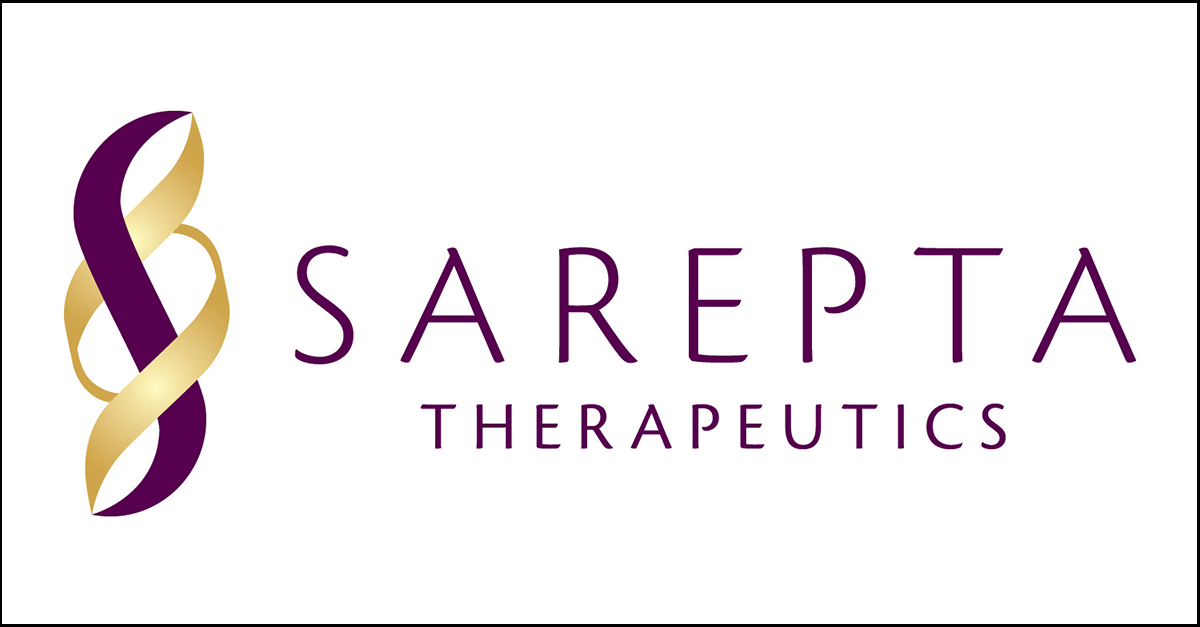
Sarepta has announced positive results from the ongoing MOMENTUM study of SRP-5051, its next-generation treatment for individuals with Duchenne who are amenable to exon 51 skipping. This is the first clinical data from SRP-5051, an investigational treatment that uses Sarepta’s PPMO technology.
Results from Part A of the multi-ascending dose MOMENTUM study found consistently higher tissue exposure, exon-skipping and dystrophin production in patients taking a monthly dose of SRP-5051 compared to baseline. SRP-5051 was generally well-tolerated across all doses studied, with no clinical or laboratory findings reported. The results support continued dose escalation of SRP-5051 and further clinical development.
Read the Announcement:
Sarepta Therapeutics Announces Positive Clinical Results from MOMENTUM, a Phase 2 Clinical Trial of SRP-5051 in Patients with Duchenne Muscular Dystrophy Amenable to Skipping Exon 51
12/07/20 8:55 AM EST— Results from the multiple-ascending dose trial demonstrate proof-of-concept for SRP-5051 and support continued dose escalation —
— At a total dose exposure approximately 10x lower than eteplirsen, SRP-5051 at 20 mgs/kg showed enhanced tissue exposure, greater exon skipping, and greater dystrophin production with no negative renal or other laboratory findings —
— These are the first clinical results from the Company’s peptide phosphorodiamidate morpholino oligomer (PPMO) technology, its next-generation chemistry platform —
CAMBRIDGE, Mass., Dec. 07, 2020 (GLOBE NEWSWIRE) — Sarepta Therapeutics, Inc. (NASDAQ:SRPT), the leader in precision genetic medicine for rare diseases, today announced results from the ongoing MOMENTUM study (Study 5051-201), a global Phase 2 clinical trial, of SRP-5051, its next-generation treatment for patients with Duchenne muscular dystrophy who are amenable to exon 51 skipping. This is the first clinical data from SRP-5051, an investigational treatment that uses Sarepta’s peptide phosphorodiamidate morpholino oligomer (PPMO) technology. PPMO technology includes a proprietary cell-penetrating peptide that is conjugated to Sarepta’s PMO backbone with the goal of increasing cellular uptake of drug in the muscle tissue.
Results from Part A of the multi-ascending dose MOMENTUM study found consistently higher tissue exposure, exon-skipping and dystrophin production in patients taking a monthly dose of SRP-5051 compared to baseline. SRP-5051 was generally well-tolerated across all doses studied, with no clinical or laboratory findings reported. The results support continued dose escalation of SRP-5051 and further clinical development.
“Sarepta’s PMO RNA technology is a vital platform on which we design therapies to treat those with Duchenne muscular dystrophy. Our next-generation PPMO technology is designed to increase cell penetration with the goal of offering significantly improved efficacy with more convenient dosing in Duchenne patients amenable to exon skipping,” said Doug Ingram, president and chief executive officer, Sarepta. “While patient numbers in each dose arm are small, the higher tissue concentration, exon skipping and dystrophin production in the 20 mg/kg dosing group were observed at an early 12-week timepoint and with far less cumulative drug exposure when compared to our current PMO technology. We know from our experience with PMOs that exon-skipping and dystrophin increase over time, and these results along with our preclinical experience, give us confidence as we dose escalate and continue to advance our PPMO exon-skipping therapies for Duchenne, including another five potential therapies that have already been designed, and explore the utility of the PPMO RNA platform for new disease indications.”
When compared to a control group of Duchenne patients from the PROMOVI study who received biopsies at 24 weeks after taking a weekly 30 mg/kg dose of eteplirsen, once-monthly dosing of SRP-5051 resulted in higher muscle concentration, increased exon-skipping and dystrophin at 12 weeks. A dose-dependent increase in exon-skipping and dystrophin was observed, with patients in the 20 mg/kg dose group of SRP-5051 seeing a 1.6-fold increase in exon skipping (n=4) and a 5-fold increase in the % of normal dystrophin (n=2) when compared to the group taking eteplirsen at 24 weeks.
The incidence of adverse events in the MOMENTUM study was similar across all dosed cohorts and does not suggest dose dependency. One treatment-emergent event, unrelated to study drug, occurred in the 4 mg/kg dose group. No clinical or laboratory findings were observed. Full results will be presented at a future medical meeting.
About MOMENTUM (SRP-5051-201)
MOMENTUM is a multi-arm, ascending dose study designed to identify the maximum tolerated dose of SRP-5051. Informed by Study 5051-101, a single-ascending dose study of SRP-5051, patients in the MOMENTUM study will receive monthly intravenous (IV) infusions of SRP-5051, starting at 4 mg/kg and ascending to 40 mg/kg. The study will enroll up to 24 patients, both ambulant and non-ambulant, between the ages of 7 to 21 at sites in the U.S., Canada, Australia and European Union. The primary endpoint is safety, and secondary and exploratory endpoints include exon-skipping, dystrophin expression and tissue concentration. All patients will undergo a muscle biopsy at baseline and 12 weeks in Part A and at baseline and 24 weeks in Part B. More information can be found on www.clinicaltrials.gov.About SRP-5051
SRP-5051 uses Sarepta’s PPMO chemistry and exon-skipping technology to skip exon 51 of the dystrophin gene. SRP-5051 is designed to bind to exon 51 of dystrophin pre-mRNA, resulting in exclusion of this exon during mRNA processing in patients with genetic mutations that are amenable to exon 51 skipping. Exon skipping is intended to allow for production of an internally truncated dystrophin protein. PPMO is Sarepta’s next-generation chemistry platform designed around a proprietary cell-penetrating peptide conjugated to the PMO backbone, with the goal of increasing tissue penetration, increasing exon skipping and significantly increasing dystrophin production. Around 13% of DMD patients have mutations which make them amenable to skipping exon 51. If successful, the PPMO offers the potential for improved efficacy and less frequent dosing for patients.



 by: Parent Project Muscular Dystrophy
by: Parent Project Muscular Dystrophy

